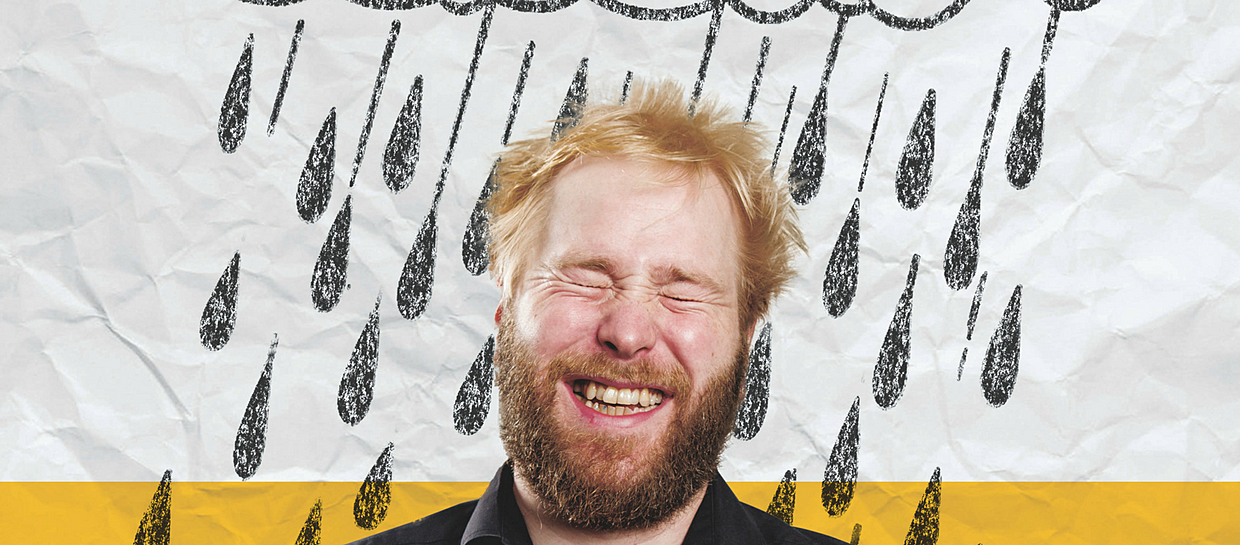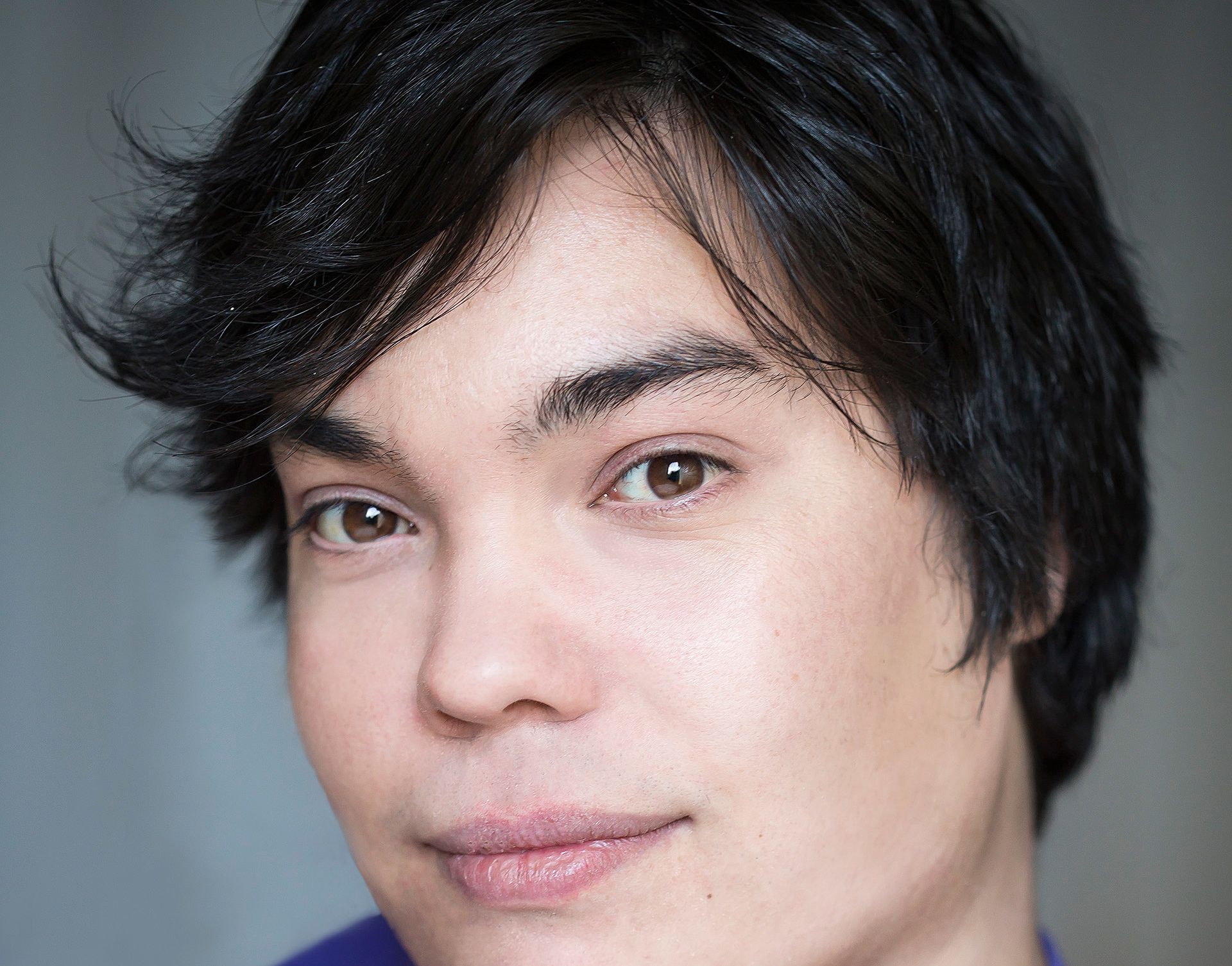There's Other People: A Review of Every Brilliant Thing
"You're six years old. Mum's in hospital. Dad says she's done something stupid. She finds it hard to be happy." The premise of Every Brilliant Thing is deceptively simple, but Sam Brooks finds it profoundly, and deeply affecting.
"You're six years old. Mum's in hospital. Dad says she's done something stupid. She finds it hard to be happy." The premise of Every Brilliant Thing is deceptively simple, but Sam Brooks finds it profoundly, and deeply affecting.
There were a couple of hundred people on Tuesday night in the audience at Every Brilliant Thing. It wouldn’t be an exaggeration to say that everybody in that audience has known somebody who has been affected by suicide or depression in some way. That spectre hangs high over Every Brilliant Thing. A lesser show would have used this as a way of manipulating emotions, but this show goes further; what it does is it transforms the audience into their own community, and in turn it shows the power of that community.
Every Brilliant Thing has well and truly done the festival rounds. Written by Duncan Macmillan with original performer, Jonny Donahoe, the show has had sell-out seasons at the Edinburgh Fringe Festival, an HBO special, and rave reviews. It comes to Auckland as a gilded, well-oiled machine, and with a new performer, James Rowland.
Before the show, the very amiable Rowland wanders around the Q Rangatira space, set up in the round and in full light so we can all see each other. He asks if people would be happy to read out things from bits of paper. If someone says yes, he asks them to read it so they’re comfortable, and if someone declines, he warmly tells the person that it’s okay, there’s lots of other people. These bits of paper are part of the list that forms the backbone of the show.
That backbone is simple, almost deceptively so. After his mother tries to commit suicide, a seven year old child writes down all the brilliant things in the world that he can think of. Every Brilliant Thing tells the story of that child as he grows up, and the list is a reoccurring feature. The story itself is straight-forward, and as gentle as a summer cloud; it’s not meant to challenge us or throw any kind of issue in our face. It’s meant to draw us in.
What also draws us in is the execution of the list; at different moments in his story, Rowland invites individual audience members to read out entries on the list - those bits of paper they received before the show began.. He also co-opts them to play characters in his story; a tall English guy plays his father, anolder woman on the other side of the audience plays his counsellor, while a younger, enthusiastic woman plays his partner he met at university. It could be disastrous, and god knows a New Zealand audience can make audience participation difficult, but Every Brilliant Thing sets up the contract so specifically and with such warmth at the start of the show that it becomes a joy to participate, not a chore. Everyone seems to take up their assigned role gleefully. The warmth of the performer and the gentle escalation of the interaction breaks down even our walls.
But what does this participation do? It could be cute, and it could be twee. We’re all in this together and we’re all a part of the show. We could easily walk out of this feeling good about what we’ve done, or walk out of this feeling like we’ve been tricked into emotions, but we don’t. It’s stupendously easy to use the spectre of suicide as a way to provide easy empathy into a plot and manipulate an audience into feeling something.
But the genius of Every Brilliant Thing - and it really is genius - is that it confidently builds a community. A community that is full of weight and necessity. It’s in the moment in which Rowland rings his counsellor the second time and it’s one of us, it’s when he plays not being able to remember something on the list, and can’t rely on the safety net of the audience, who up until this point have had all the answers but suddenly don’t. In this way, through its very structure, the show implicitly suggests that this is how we could support those around us. A list of brilliant things is nice and it’s a beautiful thing, but sweetness alone doesn’t save people who are suicidal or who suffer from depression. What can help is listening to them and letting them talk.
I went into Every Brilliant Thing feeling pretty low and unenthusiastic about life. I had no idea what the show was about, and I’m not sure I would have gone had I checked. Things in the show resonated with me deeply, some of them uncomfortably so. There were things I used to understand so intrinsically in the show that no longer made sense to me, and there were things in the show that made sense to me that wouldn’t have made sense in a happier time in my life. There were times when I empathised so clearly with the protagonist’s mother and what she was going through that her headspace made sense to me when it wouldn’t have in the past, while the headspace of the boy making lists of brilliant things for his mother made absolutely no sense to me whatsoever.
I spent a lot of the show being affected - but also not wanting to be seen being affected - by the people sitting across from me, or even my friend sitting next to me. About halfway through the show I had made plans to get out of the theatre as soon as possible after the curtain call, so I wouldn’t have to talk about what I’d seen or what had affected me, or why it had affected me in that way.
But I came out of it wanting to talk. I wanted to talk to friends I should be talking to about my life and the issues I’m having. I came out of it with a community of a couple of hundred people who I felt like I could talk with about this problem, a community who had been through the most gentle and playful education, and a community that I can only hope is inspired to put that education into action.
Every Brilliant Thing is an amazing, and as much as I hate to say ‘important’ because it’s an overused and general adjective, it is an important part of Auckland Arts Festival. But it should be in classrooms. It should be in lecture theatres. It should be in community halls. It should be shown to everybody who has a child, who has a sibling, who has a mother, who has friends. Everyone should see this show, because everyone needs to know how to listen, and even more importantly, everyone needs to know how to talk.
It’s okay, there are lots of other people.
Every Brilliant Thing runs at
Q Theatre as part of Auckland Arts Festival
from Thursday 21 March to Sunday 26 March
For tickets to and more information about Every Brilliant Thing, go here.

